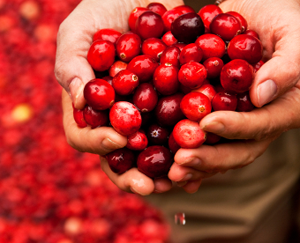Gluten Free
What does following a gluten-free diet mean? That you're embarking on an easy diet with a wide range of health-promoting effects. Instead of dwelling on what you’re giving up, consider that you’re going to enjoy a whole new world of delicious food options to meet your special dietary needs. You’ll be eating seasonally, choosing more fresh fruits and vegetables, focusing on meats, seafood, poultry, legumes, lentils, corn, and rice, and discovering fascinating ancient grains such as quinoa, amaranth, and millet. You’ll be able to eat potatoes, eggs, most cheeses, even chocolate (!)—and enjoy them without guilt because you’ll be taking good care of your body. In fact, you’ll probably end up eating—and feeling—better than ever!
Visit this page for more information about living Gluten Free
---
We carry a large variety of gluten free items, the brands listed below represent just some of the offerings we carry















More Diets
- By Kimberly Beauchamp, ND
Cranberry Improves Common Male Problem
Cranberries have a long history as a natural treatment for urinary tract infections and a study in the British Journal of Nutrition reports that they may also help improve urinary flow and other symptoms associated with prostate enlargement in men. “These results are the first firm evidence that cranberries may [improve] lower urinary tract symptoms,” said the Czech researchers.
Benign prostatic hyperplasia (BPH) and chronic prostatitis frequently affect men as they get older. Both of the conditions cause swelling of the prostate gland which can lead to slow urine steam, incomplete emptying of the bladder, and urinary frequency and urgency. BPH and prostatitis can also cause other problems if left untreated; plus, they’re just not comfortable to live with.
Standard treatments for BPH and prostatitis include medications such as:
- Alpha blockers like Flomax® (tamsulosin) that help relax the muscles to enable easier voiding
- 5-alpha-reductase inhibitors like Avodart® (dutasteride) that block male hormones and help shrink the prostate
- Antibiotics to help keep infection at bay.
Each of these treatments comes with certain side effects, which may include bacterial resistance, sexual problems, headache, and weight gain.
The study aimed to determine if a cranberry extract might improve urinary tract symptoms in men with prostatitis or BPH
Cranberries come through
The aim of the study was to determine if a cranberry extract might improve lower urinary tract symptoms in men with prostatitis or BPH. During the six-month study, 21 men were given 1,500 mg of cranberry fruit powder per day and asked not to eat other foods high in phenolic compounds (especially those with red/blue pigments like blueberries, cherries, grapes, and cranberries). Another 21 men (the control group) received the same dietary advice, but did not take the cranberry supplement.
Compared with the control group, men symptoms in the cranberry group significantly improved in several areas by the end of the study, including quality of life, rate and amount of urine flow, urinary frequency, urgency, straining, and waking at night to urinate. No adverse effects were reported.
“Although it hasn't been compared to placebo, cranberry extract appears to be a safe and effective treatment to manage symptoms of chronic prostatitis and benign prostatic hyperplasia,” says Dr. Jonathan Goodman, a naturopathic doctor practicing in Bristol, Conn. “Given the side effects of common treatments for these conditions, cranberry offers a compelling alternative. I will recommend cranberry extract in this dose for my patients.”
Add some tart to your table
While the study used a cranberry extract, it certainly can’t hurt to add the bright little berries to your diet, too.
- Start your day with a glass of cranberry juice. If you’re really brave, opt for the unsweetened stuff.
- Cook with the whole berries. Try adding cranberries to cookies, pies (they’re great with apple), breads, smoothies, and even stuffing.
(Br J Nutr 2010;104:1181–9)












